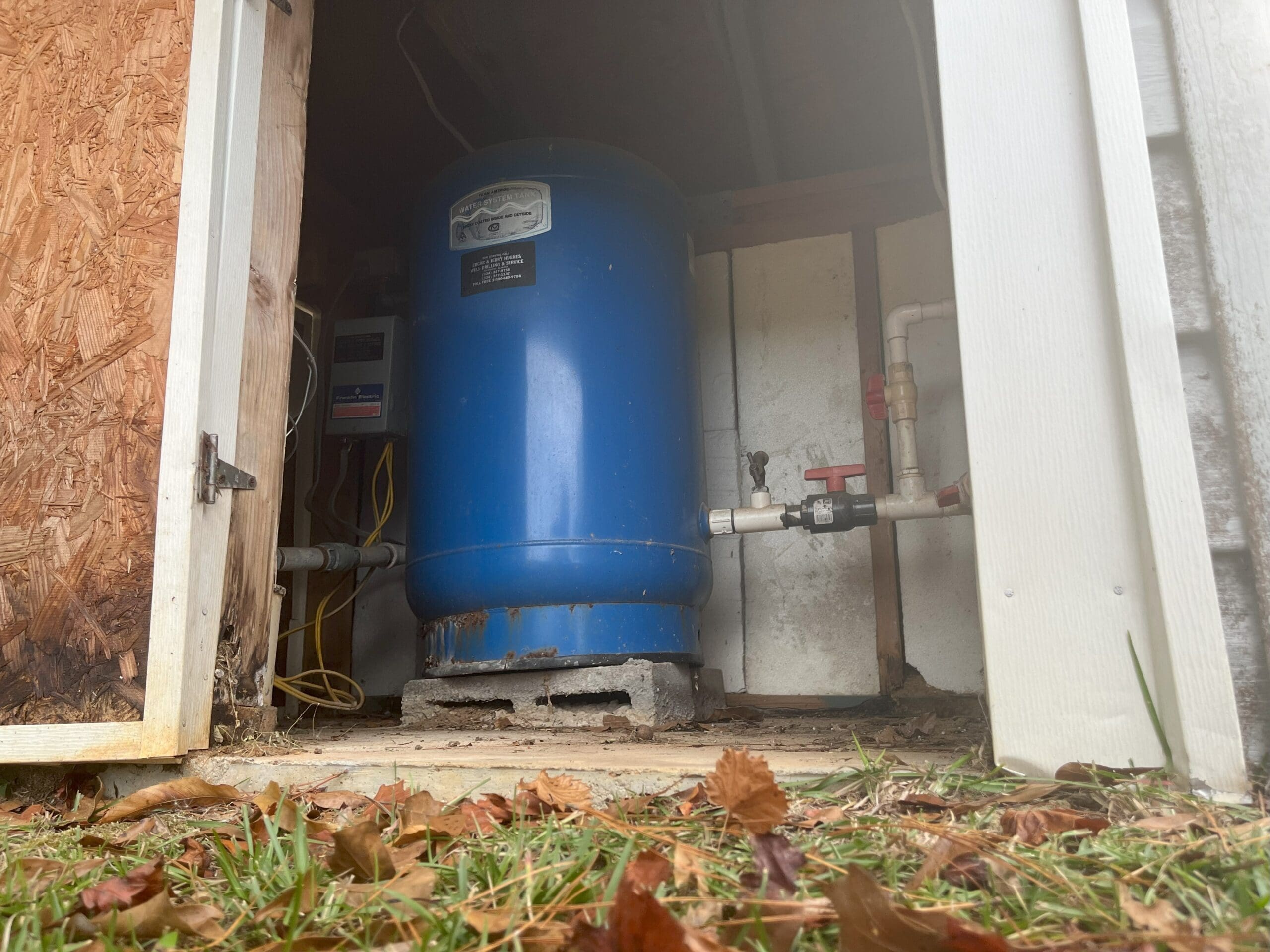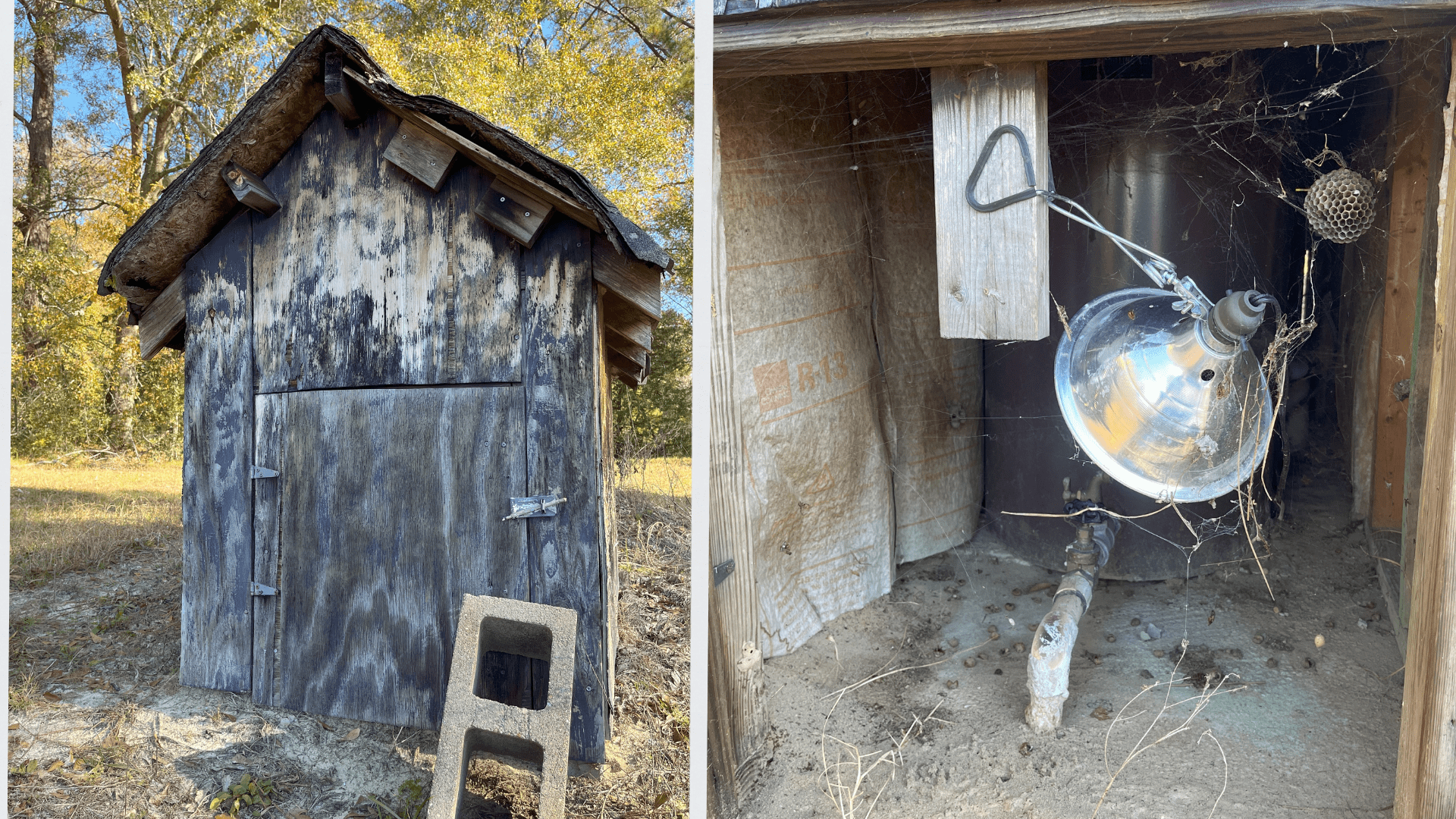In Jack, an unincorporated community in Coffee County, southeastern Alabama — not far from Dothan and about 80 miles south of Montgomery — Janie Hall has always considered her family’s well water to be a given: clean, dependable, and part of everyday life. She never thought much about where it came from or how to maintain it.
“We moved here in 2002, and my grandparents came a few years earlier. Since our wells were put in, nobody’s ever looked at them again.”
— Janie Hall, CU Well & Septic Client in Jack, AL
That changed when her longtime friend, Alexis Nank, told her about the Private Well and Septic System Assessment Program offered by Communities Unlimited (CU) through two Environmental Protection Agency (EPA) grants. Alexis, a Community Environmental Management Technician with CU’s Community Infrastructure Team, conducted the assessments recently.
This initiative focuses on improving private well and septic safety in rural areas, and Alexis encouraged Janie to participate. At first, Janie was surprised — she hadn’t realized these systems required regular attention. With her 88-year-old grandfather Benjamin Hall living just next door, she knew it was the right call.
“My grandfather had open-heart surgery years ago, and we’ve been taking care of him since my grandmother passed. She was the backbone of our family. So, when Alexis mentioned the assessments, I thought, ‘Yeah, that’s something we should do.’”
— Janie Hall
Looking Beneath the Surface
The process began with detailed conversations about the property’s water systems — everything from well depth and pump type to how many people the well served and whether the water was used for gardening or livestock. Alexis explained that this information helps tailor the assessment to the household’s needs.
During the visit, Alexis inspected both wells and their surroundings. The contrast was stark: Janie’s pump house was showing its age, with signs of insect infestation and structural wear. Her grandfather’s, by contrast, was one of the best-maintained Alexis or CU Alabama State Coordinator Dinah Foreman had ever seen.

Septic Assessments were also completed with a focus on surface conditions and environmental clues. Though CU doesn’t open tanks or perform repairs, Alexis checked for signs of trouble — like overly lush vegetation or standing water. Fortunately, nothing concerning stood out.
Water samples were collected and sent to a lab, with results confirming what Janie had hoped: no bacteria, no harmful contaminants. The only flag was a higher-than-average water hardness level, which Alexis explained was more of an equipment issue than a health concern. She suggested filters or fixtures to help protect appliances.

Relief, Knowledge, and a New Routine
Janie described the experience as eye-opening. “You don’t really think about bacteria in your well water,” she admitted. “But now that I know what to look out for, it’s something I’ll keep up with — probably every 10 years or so.”
For a family that’s lived on the same land for decades without a second thought about their water systems, the assessments brought a valuable shift in perspective.
“It’s just one less thing to worry about. Especially with my grandfather’s health, it really lifted a weight off our shoulders.”
— Janie Hall
She also emphasized how rare these types of services are — and how essential they can be in places like Jack, where many families, like hers, rely on well water.
“A lot of folks here run chicken houses,” Janie said. “If there’s something wrong with their water, it could ruin their livelihood. These systems really do need to be checked.”
At the end of the process, Alexis reviewed the results with Janie and gave her a Well Owner’s Manual for future reference. With both systems in good shape, no further action was needed — just the peace of mind that comes from knowing their water is clean and their systems are sound.
“It gave us a lot of knowledge we didn’t have before,” Janie said.
With CU and EPA’s support, and the trusted relationships built in communities like Jack, families are gaining the tools — and confidence — to protect their health and homes for generations to come. Additional resources for private well owners can be found at The Private Well Class, a partner of CU’s through the Rural Community Assistance Partnership (RCAP) network and the University of Illinois, with funding from EPA.

Need help with your private well or septic system?
Communities Unlimited offers free well assessments for rural homeowners in Arkansas, Alabama, Louisiana, Mississippi, Oklahoma, Tennessee, and Texas. Our Technical Assistance Providers will inspect your well, identify potential risks, and recommend solutions to help ensure safe, reliable water. The well owner must be present during the assessment and should provide a well log if available. Funded by the EPA through RCAP, this program supports private well owners in improving water quality and system safety.
For more information, contact CU’s Source Water Project Manager, Brett Capps, at 865-995-8168.

